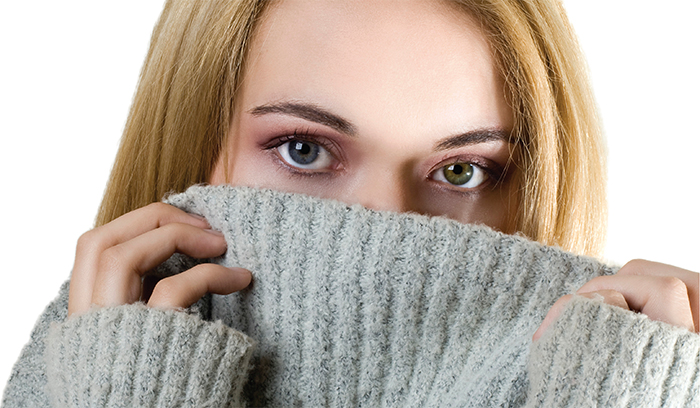How To Find Success In Managing Your Ocular Rosacea

For those who have been diagnosed with Ocular Rosacea, there is good news. Now, you can successfully manage this disease.
What is Ocular Rosacea?
For 13 million Americans, rosacea is an all too common skin disease that affects the skin on the face. Acne-like bumps accompanied by redness are a tell-tale sign of rosacea.
However, rosacea can also affect the eyes. In fact, some patients show signs of rosacea in the eyes first with some only developing rosacea in the eyes. When rosacea is present in the eyes, it is called ocular rosacea.
What Are the Symptoms of Ocular Rosacea?
There are various symptoms may indicate the presence of ocular rosacea. These include:
- Red eyes
- Itchy eyes
- Swollen eyelids
- Burning or stinging eyes
- A constant feeling of a bit of sand in the eyes
- Watery eyes from col air
- Little pimples in the rim of the eye (styes)
- Blurry vision
- Sensitivity to light
What Causes Ocular Rosacea?
Scientists are not exactly sure what causes ocular rosacea, but through research they have discovered that eighty-five percent of those diagnosed with ocular rosacea have blocked oil glands on the perimeter of the eyelids. This is called Meibomian Gland Dysfunction (MGD). When these glands are blocked, they are unable to release lubricants to thicken tears and prevent the eyes from drying out. They can also become swollen and irritated. The combination of dry eyes and swollen eyelids can lead to redness, itching, and crust around the eyes.
There are some scientists that hypothesize that mites can block the glands. Everyone has these tiny spider-like creatures on the hair follicles of the body, but not everyone has them to block the eye glands.
Other theories delivered by scientists include a link between rosacea and a bacterium found in digestive infections. Another thought is that a problem with blood vessels causes rosacea. Genes or the environment may also be a factor. People with fair skin are more prone to developing rosacea. Women in menopause also are at risk.
How is Ocular Rosacea Diagnosed?
An ophthalmologist will need to examine the eyes and lids closely. He may also look at a person’s cheeks, nose, and face. By using a type of microscope that focuses on the tiny blood vessels around and along the eyelids, they can determine the extent of the rosacea. They can also view any glands that may be plugged.
What is the Treatment for Ocular Rosacea?
There are various treatment options to help relieve the symptoms of ocular rosacea. There is, however, at the present, no cure.
Some treatment options include:
- Compresses – Applying a warm, moist hot compress to the eyelids is thought to improve circulation and help loosen any clogging and crust formed on or in the glands.
- Probing – A procedure where the doctor puts a thin rod into any plugged glands and opens them up.
- Antibiotics – A doctor may prescribe antibiotics to help with symptoms or prescribe ointments or eye drops for redness and irritation.
- Artificial tears – For a temporary fix, artificial tears can keep the eyes moist. Be aware that overuse of artificial tears can actually cause the eyes to become drier.
- Natural Treatments – Certain capsules, such as fish oil, can help the eye to remain moist. Other solutions, such as TheraLife Eye, that contain a proprietary blend of herbs, beta-carotene, vitamin E, ascorbic acid, riboflavin, zinc, copper, selenium, and I-carnative.
- Other Natural Treatments – Keeping the eyelids clean and make-up free at night, using a sleeping mask, and applying a warm compress several times a day can also help to relieve dry eyes.
- Other Natural Remedies – Since ocular rosacea can cause blocked meibomian glands around the eyes, blepharitis occurs. Blepharitis is a treatable condition. Particular diets (such as an autoimmune diet), certain vitamins and minerals (such as L-Lysine and vitamin C), and powerful antioxidants such as methylsulfonylmethane (MSM) can help to reduce inflammation naturally.
By using a combination of treatments, patients often find that their ocular rosacea becomes quite manageable. For people who are interested in a completely natural way to treat their ocular rosacea, To learn more, click here
With their complete line of natural treatment options, finding relief from your ocular rosacea is simply a click away.